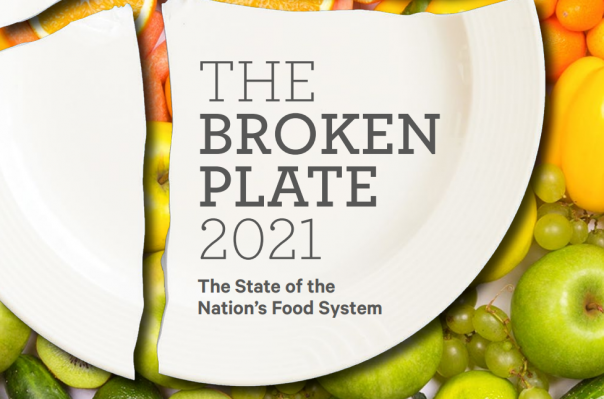
The report has been published ahead of the National Food Strategy led by Henry Dimbleby, which is expected to contain ‘strong and urgent’ recommendations for the government.
The Broken Plate Report uses ten metrics to showcase the current UK food system and the lack of progress made to improve food security, obesity levels and sustainability.
Anna Taylor, executive director at the Food Foundation, said: “With the National Food Strategy just around the corner and the task of rebuilding post pandemic now underway, there has never been a more opportune time for the government and businesses to face the challenge of fixing our food environment head on.
“Bold action will be required if we are to safeguard the future health of our children - but is by no means impossible. This year’s Broken Plate report highlights that our current food environment is failing to deliver diets that are just, healthy or sustainable with this having very real health implications for millions of citizens.”
Over half the children born in 2021 are expected to have experienced diet-related disease by the time they reach 65-years-old.
Key metrics from the report include:
- Advertising: Advertising spend on fruit and vegetables remains very low, with just 2.5% of total food and soft drink advertising spend going towards fruit and vegetables. (This figure fell in 2020 compared to 2019).
- The affordability of a healthy diet: The poorest fifth of UK households would need to spend 40% of their disposable income on food to meet Eatwell Guide costs. This compares to just 7% for the richest fifth.
- The cost of food: Healthy foods are nearly three times as expensive as less healthy foods calorie for calorie.
- Places to buy food: One in four places to buy food are fast food outlets. The area of England with the highest density of fast food outlets is Blackburn with Darwen.
- Sugar in children’s food. 96% of yogurts and 92% of cereals marketed towards children contain high or medium levels of sugar.
- Wages: In 2020, 25% of workers in the food sector earned the minimum wage or below compared to 11% of workers across the UK.
- Veg in ready meals: Around a fifth (22%) of ready meals are vegetarian or plant-based, with a welcome recent drop in price for vegetarian and plant-based meals.
- Weight: Children in the most deprived fifth of households are almost twice as likely to have obesity as those in the least deprived quintile by age 4-6.
- Height: In England, children living in deprived communities are shorter than children living in wealthier communities by the time they reach age 11.
- Diabetes: There are almost 10,000 diabetes-related amputations carried out on average per year, an increase of 24% in the past five years.
Simon Billing, executive director at Eating Better, added: "We need to create a food environment where everyone has a better chance to eat more veg, more often, as currently we’re not eating anywhere near enough, with all the health implications that brings.
“As we see from our Ready Meals survey, there is some progress on upping veg content, but there is much more work to do on making healthier and sustainable food mainstream and affordable for all."